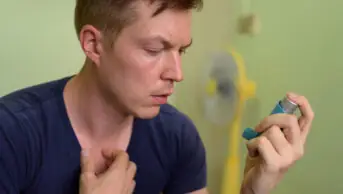The views expressed in this letter are those of the author’s. If you would like to submit a letter to The Pharmaceutical Journal, please click here.
When the COVID-19 epidemic raged around the world, I had the opportunity to record the experience from a traditional Chinese medicine (TCM) clinic in London’s Chinatown from January to March 2020.
The TCM clinic was aware of the risk of the virus long before any announcement from the British government. In the early days, there was high demand and limited production of masks in China, but similar effects were soon felt by Chinese communities in many countries.
In response to this purchasing wave, staff of the TCM clinic bought masks online to sell in the clinic, and the price of masks and bundles — including masks with other products, such as hand sanitisers — were raised. Another wave happened when Chinese people wished to travel before suspension of flights from the UK to China, with the TCM clinic becoming a one-stop shop for every type of protective product.
In addition to selling goods, the TCM clinic developed its own procedures to identify possible cases of COVID-19 by checking where clients were from and asking if they felt any cold symptoms. Staff who went to China were asked to stay at home for spontaneous quarantine and the clinic staff also wore face masks while at work.
Meanwhile, as no effective biomedicines were recommended in the UK in early 2020, the clinic began recommending traditional Chinese medicines, which attracted Chinese and some non-Chinese people, despite absence of evidence to support their use.
It is essential to recognise the connection between immigrants and their places of origin. UK–Chinese people receive a lot of information from China and may turn to alternative approaches, such as TCM, for help. It is noteworthy how, during a period of uncertainty about diagnosis and treatment of a new disease, consumers are willing to try products with a weak evidence base.
Yangzihan Wang, doctorate student in pharmacy at Newcastle University


